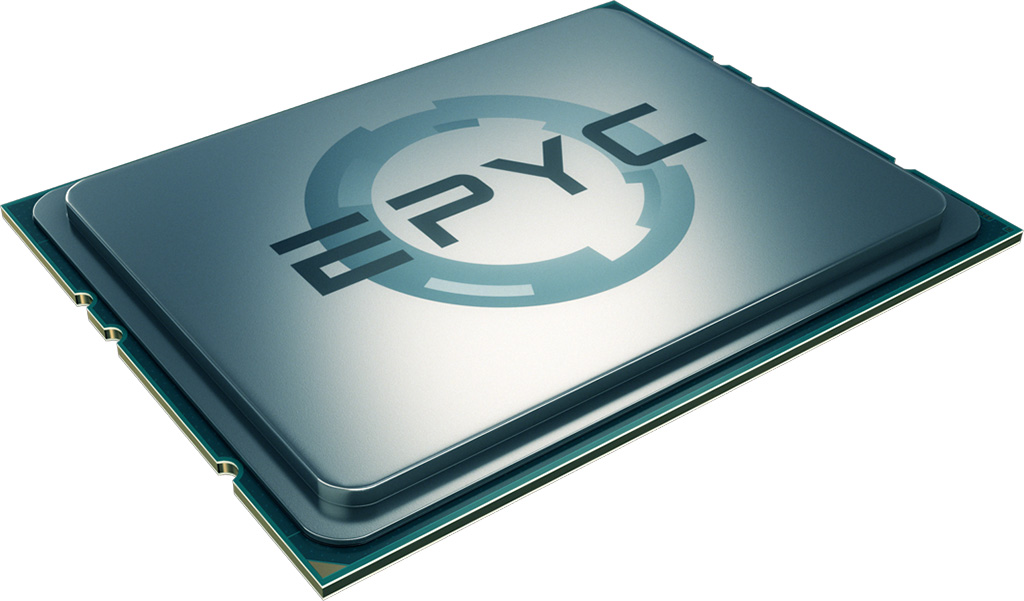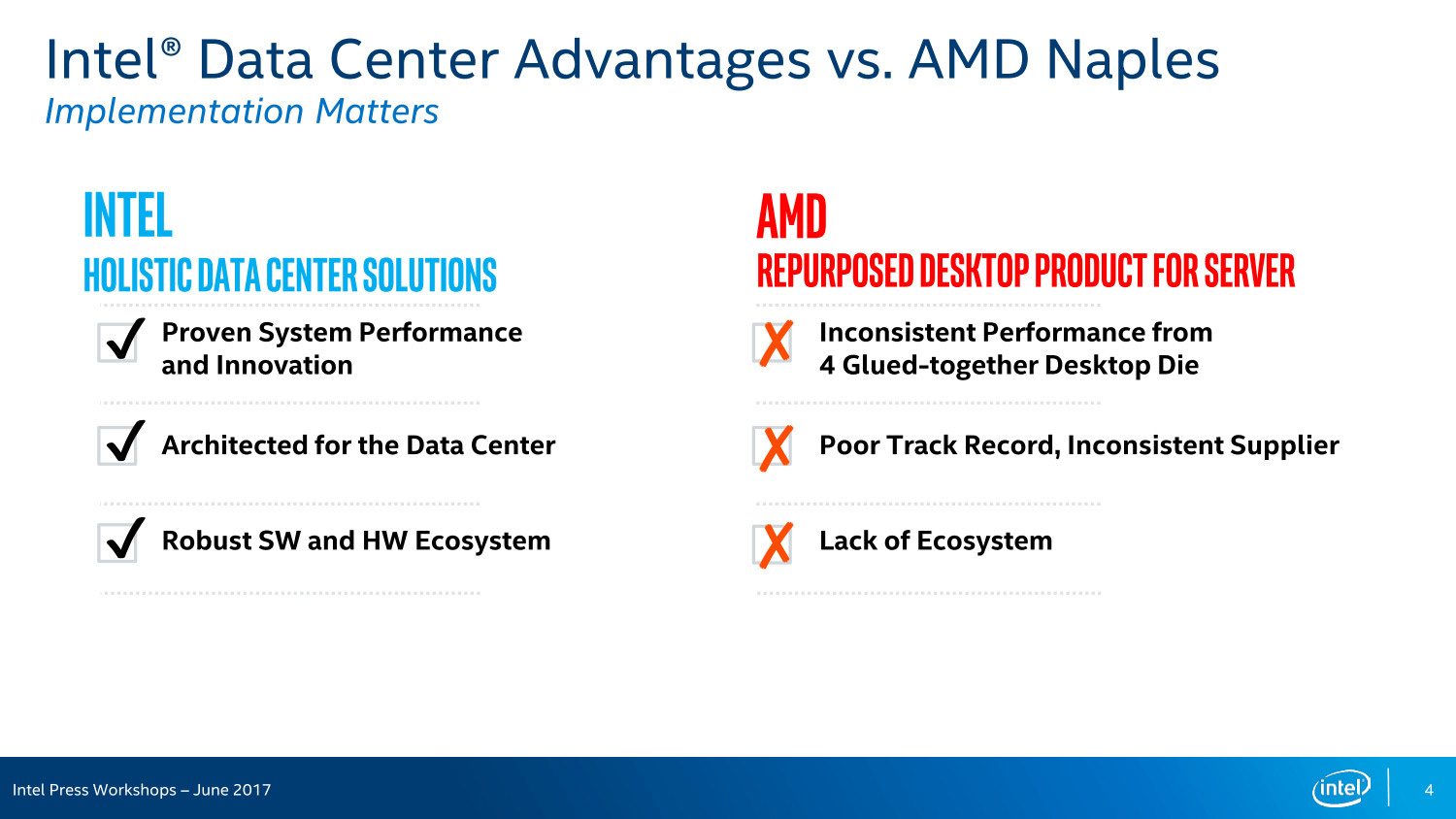Intel slide criticizes AMD for using "glued-together" dies in Epyc processors
Salty, much?

Intel is not impressed with what AMD has been able to accomplish with its Zen architecture, or at least that is what the company is portraying publicly. In an official slide Intel put together as part of a presentation promoting its Xeon processors over AMD's competing Zen-based Epyc server chips, Intel described AMD's offering as being a "glued-together" solution.
The less-than-flattering description is catching heat by some observers and could very well spark a war of words between Intel and AMD. That is, if the latter chooses to respond. Either way, the critical slides seem to suggest that Intel is feeling at least mildly threatened by AMD's comeback tour with Zen, and rightfully so.
Here's one of the slides:

While Epyc processors do consist of four Zen-based dies on a single package, AMD's approach is a little more complicated (and much more technically advanced) than Intel makes it out to be. More importantly, AMD's solution is working. As TechPowerUp points out, AMD's modular approach has certain advantages, such as better yields.
In another slide, Intel calls out AMD for not having an ecosystem in place and says to "expect software optimizations needed for Naples, just like Ryzen." Those optimizations that Intel references are related to gaming performance. So in essence, Intel is comparing its server-based Xeon processors with growing pains attributable to AMD's Ryzen desktop processors.
"So AMD's server platform will require optimizations as well because Ryzen did, for incomparably different workloads? History does inform the future, but not to the extent that Intel is putting it here to, certainly. Putting things in the same perspective, is Intel saying that their Xeon ecosystem sees gaming-specific optimizations?," TechPowerUp writes.
None of this is to say there is nothing to criticize about AMD's product lineup, on the desktop or in the server market. However, the way Intel is going about it feels a bit misleading.
Keep up to date with the most important stories and the best deals, as picked by the PC Gamer team.
Paul has been playing PC games and raking his knuckles on computer hardware since the Commodore 64. He does not have any tattoos, but thinks it would be cool to get one that reads LOAD"*",8,1. In his off time, he rides motorcycles and wrestles alligators (only one of those is true).


